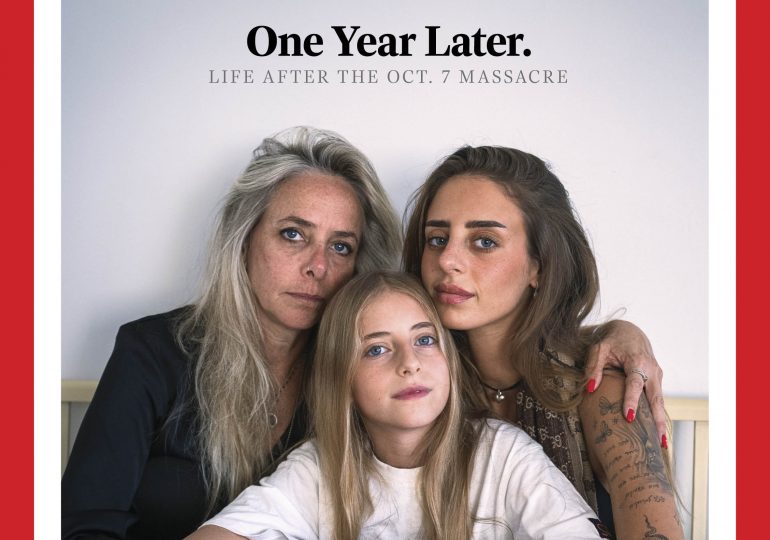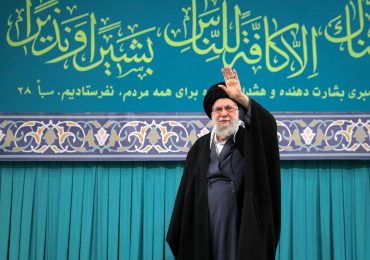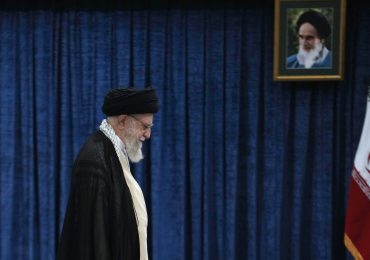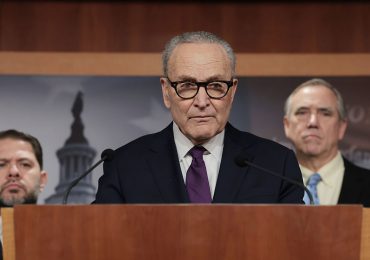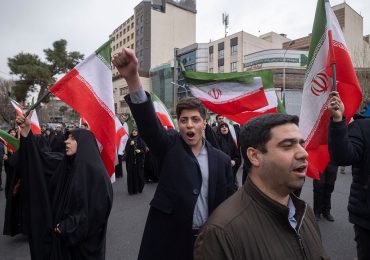A year has passed since Hamas launched the attack on Israel that set the Middle East ablaze. That dreadful day, on which 1,200 people were killed, would come to mark the start of the bloodiest war in the history of the Israeli-Palestinian conflict, one that would result in more than 40,000 Palestinians killed, according to Gaza health ministry figures that the U.N. and U.S. government consider reliable, and would drag Israel into direct armed conflict with actors in Lebanon, Yemen, and Iran.
[time-brightcove not-tgx=”true”]
It was also the day hundreds of families across Israel and around the world learned the devastating news that their loved ones were either killed or missing, in what would become the largest-scale hostage crisis in the country’s history. Since then, of the 251 individuals who were taken into Gaza, 105 hostages have been freed via negotiations with Hamas. Another eight were rescued during daring but deadly operations. At least 35 hostages have also been confirmed dead since the war began, and approximately 100 remain in captivity one year later.
Last year, TIME spoke with over a dozen family members and close friends of those who were kidnapped. Featured on that cover were Jonathan Polin and Rachel Goldberg-Polin, whose son Hersh Goldberg-Polin was abducted at the Nova music festival and whose death was confirmed just over a month ago.
Read more: Counting the Days With Rachel Goldberg-Polin
Now, one year later, photographer Michal Chelbin, who created the portraits for that story, visited with three of those families to see how their lives have changed since Oct. 7. Two of the families have been fortunate enough to see their loved ones return home, though the trauma of the last year lingers. One family, whose loved one is believed to remain a hostage in Gaza, is—like so many others—still waiting. These are their words, edited for length and clarity.
Keren Schem
Keren Schem’s daughter Mia Schem was kidnapped from the Nova music festival and taken into Gaza. Nine days after her capture, Hamas published a video of her, during which she confirmed her arm had been severely injured and asked to be returned home as quickly as possible. Fifty-five days into her captivity, Mia was freed in a prisoner exchange deal with Hamas.
It’s really hard to internalize that a year has passed and there are still hostages in Gaza. There are still families that are in the same situation that I was in for two months. It’s something that is impossible to understand.
We still have not returned to normal life because the rehabilitation process is long. She needs to go through more surgeries, and also the emotional recovery. I don’t know how many years that will take. And because of the complex reality in Israel, the hostages, war, the soldiers—it’s not really possible to recover. Because of the trauma that Mia went through and that I went through, the triggers are always around. There is no normal life, and life before Oct. 7 is not life after Oct. 7. We still haven’t developed a new routine and lifestyle because we are still in the process of recovery.
Life has returned to normal, people returned to work. That’s how it is, it’s a natural thing. But it’s important to understand that 101 hostages are still in the tunnels of Gaza. It’s a situation that is unfathomable for the hostages and their families. The world can’t continue to go as normal so long as there are still people there.
Read more: The Families of Israelis Held Hostage by Hamas Speak Out
Sigi Cohen
Sigi Cohen’s son, Elia Cohen, was kidnapped from the Nova music festival. Elia and his girlfriend had initially taken cover once the attack started, along with 30 other people inside a bomb shelter. However, Hamas militants ultimately found the bomb shelter and began throwing grenades inside, wounding and killing many of those around them.
“The luck of Elia and his girlfriend—I don’t know if you can call it luck—was that they were towards the side of the shelter, so all the bodies fell on them,” Elia’s sister, Yuval Tias, told TIME last year. Elia’s girlfriend had said she heard screams, and someone grabbed Elia from the pile of bodies. After, a photo began circulating on the internet of Elia inside a Hamas hospital.
The Israeli army has notified Elia’s family that he is believed to be among the remaining hostages.
Sigi recently welcomed a new granddaughter.
The feeling of missing him is impossible to describe. And the fact that so much time has passed and we still don’t know anything is frustrating and very painful. Elia is a very happy person who loves life and has many many friends. He went to dance; he was a citizen who didn’t do anything. He needs to return home and the world needs to denounce this act and to ask and demand that he and all the hostages return home.
I have faith. I can feel that Elia is alive. He was kidnapped alive and I believe that until now he is still alive. And I have faith that, God willing, he will return to us soon. The faith makes me strong and gives me the hope that he will return to us soon.
This amazing granddaughter that came to us has added so much light to our home, together with a darkness that Elia doesn’t know that he has a new niece. Her name is Tuv Orah. The meaning of this name is “Good, light of god.” We are asking God, since He has given us such a good thing by bringing our granddaughter into our lives, that He continues to bring good to our lives and show Elia the path to return home.
Read more: As the Families of Murdered Hostages, Our Message to People in Power Is Simple: Act
Yoni Asher and Doron Katz-Asher
Yoni Asher’s wife, Doron Katz-Asher, and their two daughters, who were ages 2 and 4 at the time, were kidnapped while visiting Doron’s mother in Kibbutz Nir Oz. They remained in captivity for 49 days, before Hamas released the three of them in a prisoner exchange deal.
Doron recently announced that she was pregnant in an Instagram post shortly after the Jewish New Year holiday, according to Israeli media. “To bring life into the world,” she wrote in her post, “one year after I almost lost my own life—is the greatest gift we could have asked for this new year.”
Yoni Asher:
I did not imagine that one year after Oct. 7, we would be speaking about hostages that are still there. This is preventing us as a family from fully healing. It’s preventing us from starting to get past this trauma. When I see those families still suffering, when I was in their position exactly, it personally makes me feel guilty. When I was in this situation for 49 days, I cannot even imagine their suffering after one year.
It did change how I see my family in a lot of ways. We do not appreciate most of the time what we have: our health, our wellbeing, the fact that we are alive even, and breathing and free. Today I appreciate every second with them, and no matter what happens I am thankful.
Doron Katz-Asher:
From my perspective it feels like it was yesterday, and it’s ongoing till today. It feels like one single endless day. It changed me on a personal level and gave me some perspective on what is important in life. It changed the whole family. I appreciate the little day-to-day activities that were taken from me in an instant. Even to drink cold water—the simplest thing that maybe nobody thinks could make someone happy.
In the beginning, we did not use the word “hostage” [with our children] but now Raz [our oldest daughter], talks about it. She says, “They took us hostage, there’s hostages in the streets, I want the hostages to return home.” She understands the meaning of this.
Yoni Asher:
[The children] are very young. You can’t explain to them the situation the way you would to an adult. But after what they experienced, you can’t hide from them the truth. You need to sympathize with them when they are asking questions and they are curious. Using professionals and our personal instinct as parents, we react to those questions and we sympathize. This is a process, and I am also myself learning to cope with this new situation.
We are all eventually parents, no matter if you are from the United States or France or Britain or Germany or Israel. When you have children, and you are a parent, you share a common subject. I think [of the] over 400 interviews and [media] encounters I did during those 49 days—many people told me [it was] an inspiration for them. When you get those reactions you learn that your voice matters and your voice is important. That is why I’m going to Geneva to the U.N. on Oct. 7 to tell our story.
Doron Katz-Asher:
I just don’t want people to forget. Don’t forget my story, or the stories of the 250 other hostages, and the over a thousand who were killed on that same day. We were taken from our beds. We are human beings. It doesn’t matter who we are or what our opinions are, what religion we are. We are people who were living our lives. We lost our freedom in a single day. And I was lucky enough to be able to return home but today there are still people there who haven’t returned home. Children, the elderly, women.
There will not be an ending until everyone is returned.
—With reporting and production by Oded Plotnizki.

